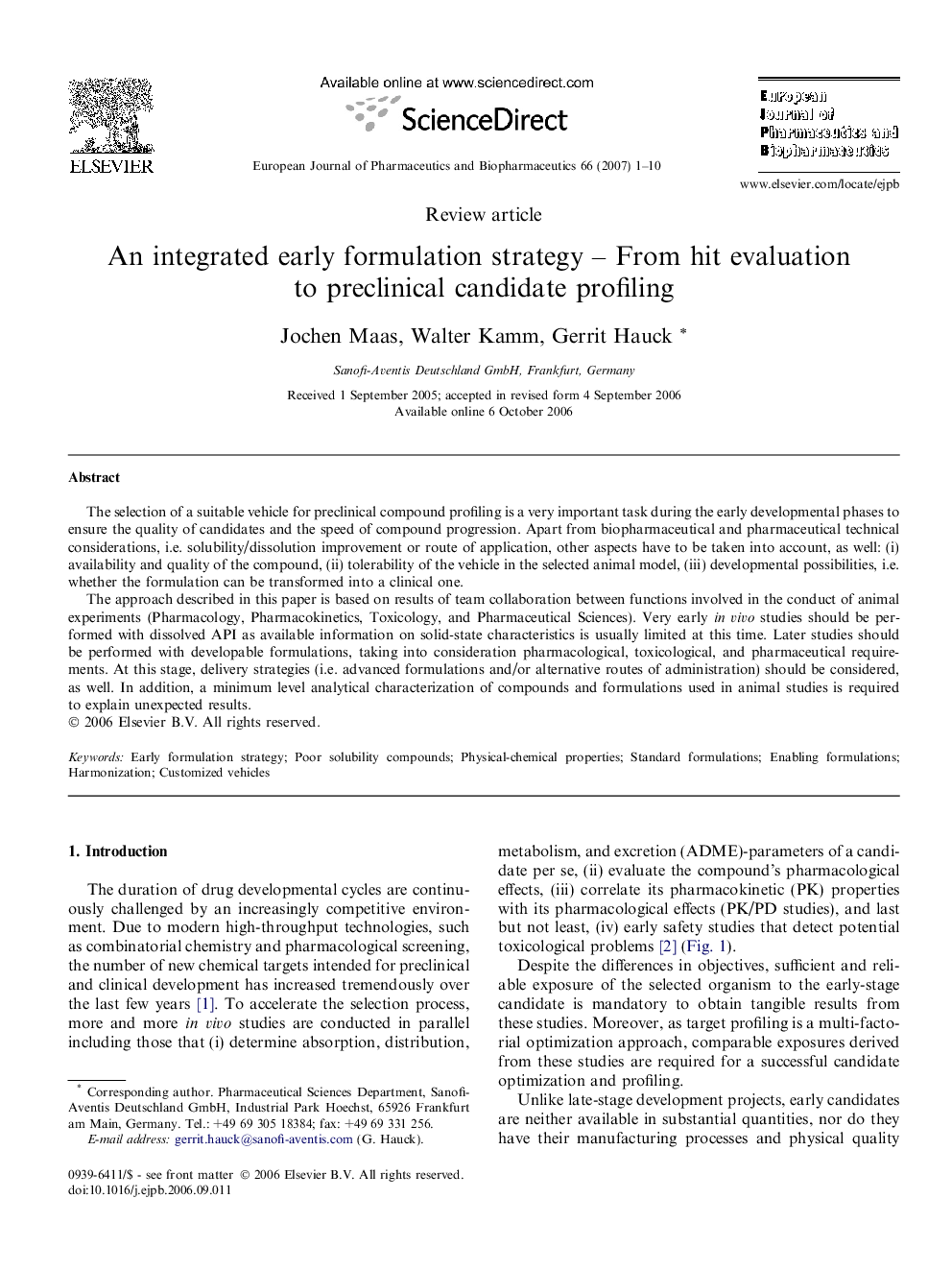| کد مقاله | کد نشریه | سال انتشار | مقاله انگلیسی | نسخه تمام متن |
|---|---|---|---|---|
| 2084951 | 1645470 | 2007 | 10 صفحه PDF | دانلود رایگان |

The selection of a suitable vehicle for preclinical compound profiling is a very important task during the early developmental phases to ensure the quality of candidates and the speed of compound progression. Apart from biopharmaceutical and pharmaceutical technical considerations, i.e. solubility/dissolution improvement or route of application, other aspects have to be taken into account, as well: (i) availability and quality of the compound, (ii) tolerability of the vehicle in the selected animal model, (iii) developmental possibilities, i.e. whether the formulation can be transformed into a clinical one.The approach described in this paper is based on results of team collaboration between functions involved in the conduct of animal experiments (Pharmacology, Pharmacokinetics, Toxicology, and Pharmaceutical Sciences). Very early in vivo studies should be performed with dissolved API as available information on solid-state characteristics is usually limited at this time. Later studies should be performed with developable formulations, taking into consideration pharmacological, toxicological, and pharmaceutical requirements. At this stage, delivery strategies (i.e. advanced formulations and/or alternative routes of administration) should be considered, as well. In addition, a minimum level analytical characterization of compounds and formulations used in animal studies is required to explain unexpected results.
Journal: European Journal of Pharmaceutics and Biopharmaceutics - Volume 66, Issue 1, April 2007, Pages 1–10